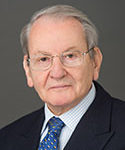It is a fundamental tenet of our system of jurisprudence that there must be an end to lawsuits. The law recognizes that “it is to the interest of the State that there should be an end to litigation.” Israel v. Wood Dolson Co., 1 N.Y.2d 116, 118 (1956). This principle pervades the judicial attitude toward motions for reargument, which were aptly described almost 70 years ago in Cohen & Karger, Powers of the New York Court of Appeals (rev. ed 1952), at page 694. “A motion for reargument is generally an act of desperation; it is a psychological device for raising hopes which are almost invariably doomed to defeat. The percentage of cases in which a motion for reargument has been granted in the Court of Appeals is very low—unquestionably less than one out of one hundred.”
Nothing has changed. The 2019 Annual Report of the Clerk of the Court of Appeals contains a table showing that during the period 2015-2019 of 131 motions for reargument of appeals, none was granted; of 317 motions for reargument of motions, only one was granted. (2019 Report, Appendix 7).
To read the full text of this article by Duane Morris attorney Thomas R. Newman, please visit the firm website.

